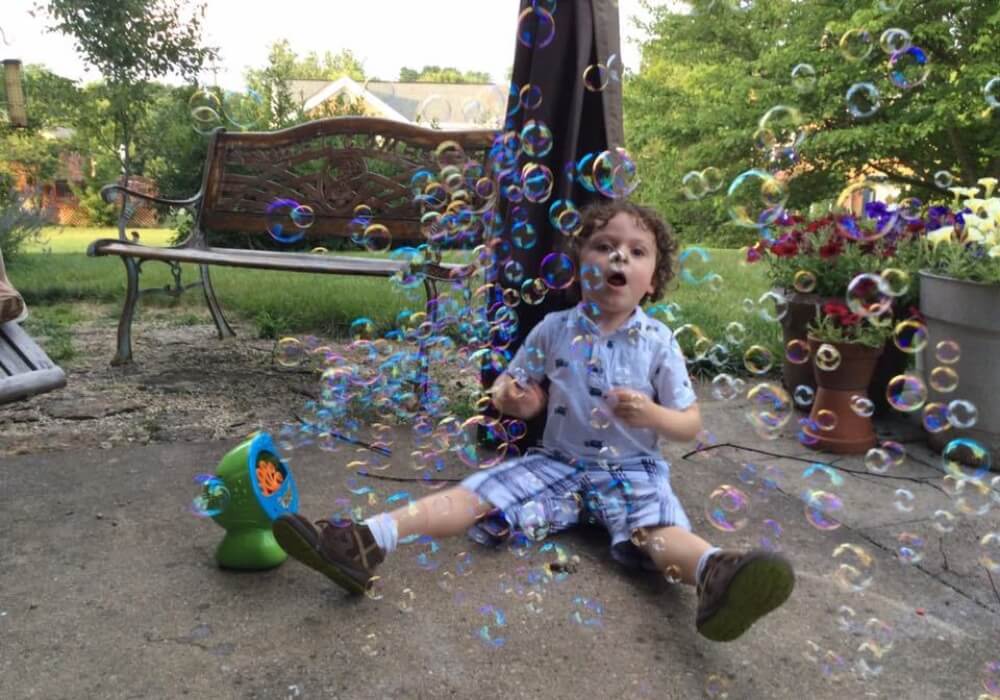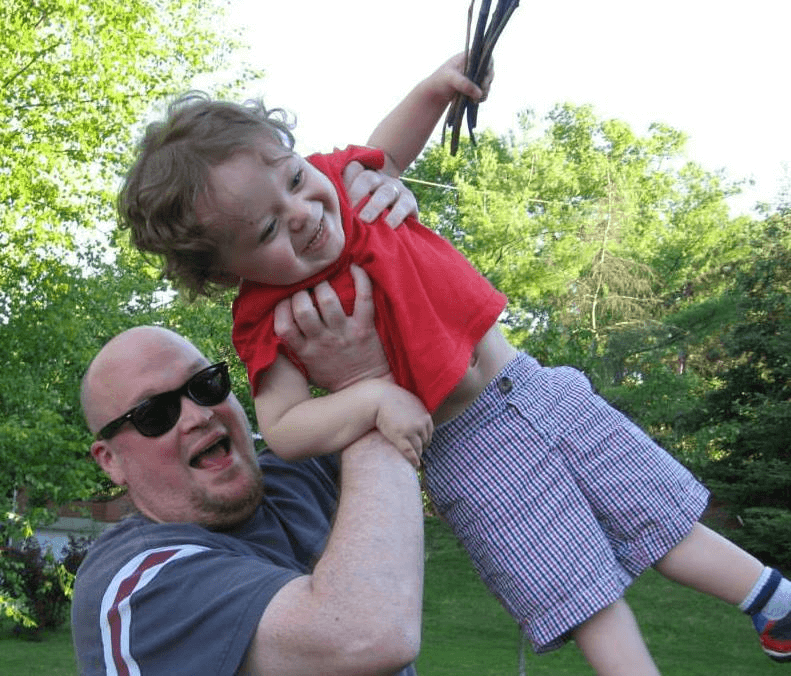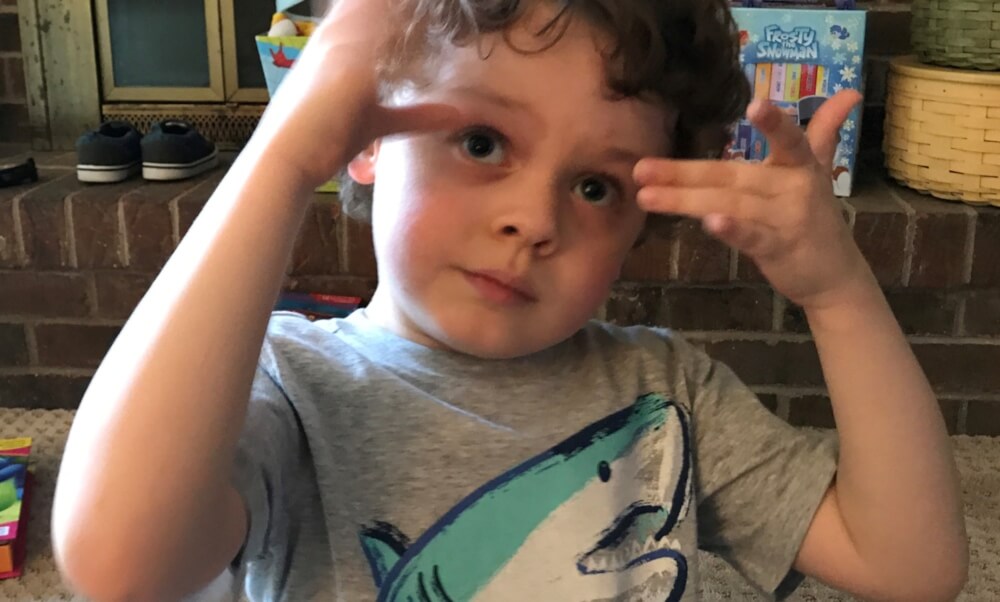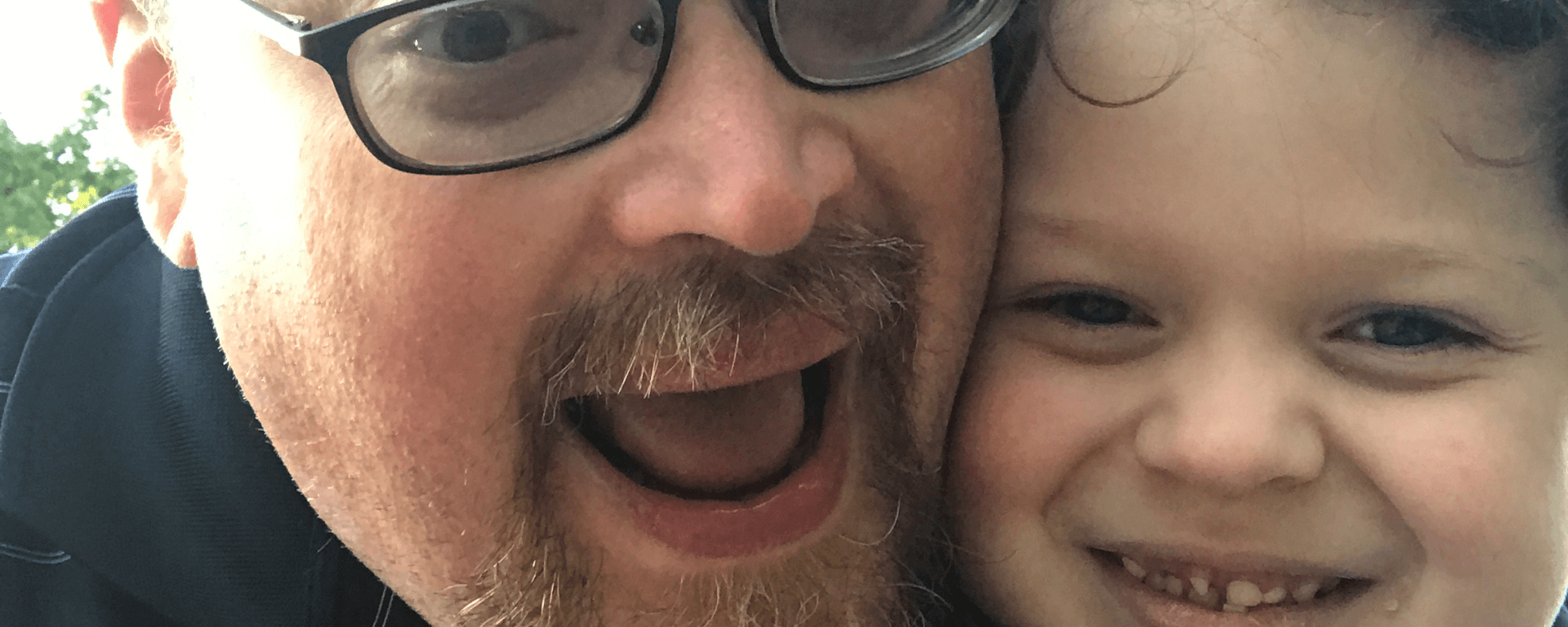They Say he has Autism

“They say he has autism.”
I didn’t go with my wife to the appointment with the developmental pediatrician that day. I had taken a couple sick days not too long before then, and I didn’t think it would be prudent to take another off.
I remember telling her I wasn’t worried about what we were going to hear. “He’s just a little behind,” I had said, confident in the outcome of the appointment.
“I was behind. I had to go to therapy and all that. Look, he’s only two. We’ve got plenty of time for him to catch up.”
Four hours later, she called me at work to give me the news. I could tell how hard she was fighting to hold the tears back.
She had been terrified that day. At two years old, our boy wasn’t walking, spoke less than ten words (most of which were incredibly difficult to make out), and seemed to spend most of his time in his own little world.

He was also prone to meltdowns at the weirdest times, set off for reasons neither she nor I could determine.
One of the workers at the daycare had actually asked her if he had been diagnosed autistic. My wife had gotten upset by that, which in hindsight was because she had figured out what I hadn’t.
No, I just waved it off as a mother being overly concerned and sent her off to receive the most life-changing news our family would ever receive by herself.
I’ll never forgive myself for that.
I stared at the receiver in shock. I’d been so sure.
“Wait,” I stammered out, unable to process what I was hearing, “he uses words! He looks me in the eye!
He loves to be loved on! That’ s not what autistic kids do!”
“Honey, the doctor’s positive. He fits all the criteria. He’s got it.” She finally lost the fight, sobbing into the phone.
That’s when I learned the first and most important fact about autism:
If you’ve ever met an autistic child, you’ve only ever met one autistic child.

There’s a very steep learning curve when your child receives an autism diagnosis. You find yourself scurrying to put as much information and help together as possible.
You split your time between trying to educate yourself and looking for any snippet of information that will convince you that your child’s still going to be able to lead some kind of “normal life”.
You even find yourself pouring through those articles about B vitamin deficiencies, gut bacteria, and fevers that “break the autism” when your kid is sick.
Basically, simple issues with simple solutions to address the far more complex situation.
Thankfully, one of my oldest friends had already been through a lot of this. His former girlfriend had a young son who’s autistic, and he still plays a huge part in the boy’s life.
My friend helped out tremendously in those first few months, and I’ll always love him for that.
Experienced support is crucial in the early days, and I can’t stress enough the importance of seeking it out, whether it be family, friends, or a local support group.
Thanks to him, I was able to sift through all the bull pretty quickly and focus on what would actually be helpful.

And so our research began. In the course of doing so, we came across a number of “common terms” associated with autism.
Some of the ones we’ve encountered and used the most include:
- Autism Spectrum Disorders – an umbrella term for a wide spectrum of neurobiological disorders that affect a child’s ability to interact, communicate, relate, play, imagine, and learn. These disorders not only affect how the brain develops and works, but may also be related to immunological, gastrointestinal, and metabolic problems. Signs and symptoms are seen in early childhood.
- Echolalia- the repetition of words, phrases, intonation, or sounds of the speech of others. Autistic children often display echolalia in the process of learning to talk.
- Hyperresponsiveness- abnormal sensitivity or over reactivity to sensory input. This is the state of feeling overwhelmed by what most people would consider common or ordinary stimuli of sound, sight, taste, touch, or smell.
- Repetitive Behaviors and Restricted Interests- common in autistic children. They may appear to have odd or unusual behaviors such as a very strong interest in a particular kind of object (e.g., lint, people’s hair) or parts of objects, or certain activities.
After almost four years, I still feel as if we’ve barely scratched the surface. As he gets older, we’re always encountering new terms and challenges. Still in the mad rush of it all, I noticed something; despite the difficulty he had in putting them together, our boy made use of some common terms of his own:
- “Hiya, Baby!!”- His standard greeting, an indication of his excitement to be seeing you.
- “Hugs?”- Self-explanatory. This child is the huggingest kid you’ll ever meet.
- “Tickles?”- Not so much a question as a demand for the immediate provision of sensory input via rigorous bear-hugs and tickling to the extremities.
- “Moke!”- A request for sustenance, usually of the dairy persuasion, but also including poultry distributed in nugget form.
- “WOO-HOO!”- It’s on.
For us, it meant that while we were scrambling to find the right therapies and tools to help him, he was going on with his happy little life and finding his own ways to let us know what he needed.
Even though he’s made (and continues to make) great strides in communicating since then, those early attempts at communication served as signs of another term, one more important than all the others to be found on-line or in any medical journals:
- Hope – an optimistic attitude that is based on an expectation of positive outcomes related to events and circumstances in one’s life or the world at large.
That particular term, along with it’s frequent companion, “Love”, are what keep us going, and have helped us to recognize that the only true indicator of success is our boy’s happiness, and how he feels about himself.
It’s not about what we want for him. It’s about what he wants for himself, and what brings him happiness. It’s about living on his own terms.
In the end, those are the only terms that matter.

Written by, Jeremy Wilson
An overgrown man-child and connoisseur of geek culture, Papa Cheeks is striving to raise his two sons to become more responsible, self-actualized men than himself. So far they are not cooperating. You can follow our story at Fatherhood in the Trenches.
Finding Cooper’s Voice is a safe, humorous, caring and honest place where you can celebrate the unique challenges of parenting a special needs child. Because you’re never alone in the struggles you face. And once you find your people, your allies, your village….all the challenges and struggles will seem just a little bit easier. Welcome to our journey. You can also follow us on Facebook, subscribe for exclusive videos, and subscribe to our newsletter.
Interested in writing for Finding Cooper’s Voice? LEARN MORE

